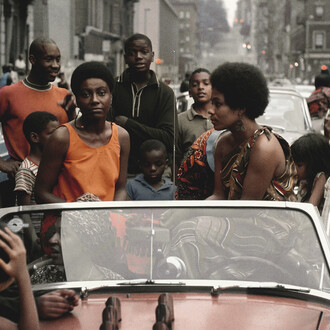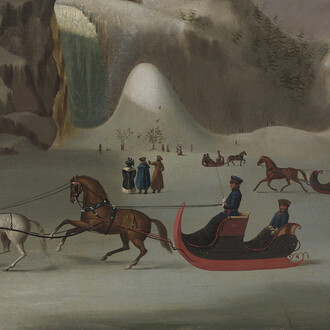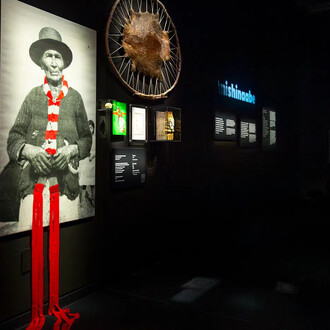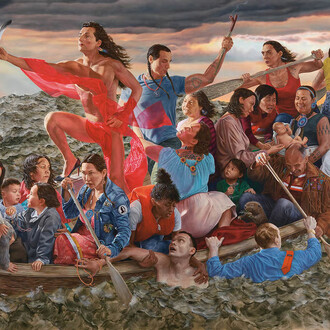Decolonize Me features six contemporary Aboriginal artists whose works challenge, interrogate and reveal Canada’s long history of colonization in daring and innovative ways. Deliberately riffing on the title of Morgan Spurlock’s film, the pop-cultural phenomenon Super Size Me (2004), the exhibition’s title emphasizes the importance of recognizing the role of the individual within larger discussions of shared colonial histories and present-day cultural politics. In the context of the recent efforts of many Indigenous communities to assert their sovereignty and right to self-determination, the artists in this exhibition explore the issues and outcomes of both colonization and decolonization while exposing how these processes have impacted Aboriginal and settler Canadian identity, both individual and collective.
Decolonize Me addresses how these dual processes have impacted and continue to affect how Canadians and Aboriginal peoples view themselves and define their relationships to one another. Through the work of these six artists, the exhibition explores not only themes of past wrongdoings, but also strategies for reclaiming Aboriginal voice. Furthermore, the exhibition honours those traditions and ancestors whose memories have endured despite centuries of aggressive colonial practices. This is done through an examination of the specific ways that diverse Aboriginal groups have experienced colonialism and the approaches these distinct peoples currently employ to restore and revitalize their communities, lives and practices.
While focused on Canada’s own history, the exhibition participates in the growing global anti-colonial movement and the ongoing transnational conversation by artists and other Indigenous peoples. Decolonize Me seeks to make visible the history and legacies of our shared colonial past while highlighting the resilience of Aboriginal communities and acknowledging the politics of resistance that have sustained Indigenous cultures through to the present day. As such, it invites the visitor to consider the ways in which they are also implicated in this history, not as perpetrators or victims, but as active participants with agency and a shared responsibility, to borrow a phrase from First Nations philosophy, to “all our relations.”












